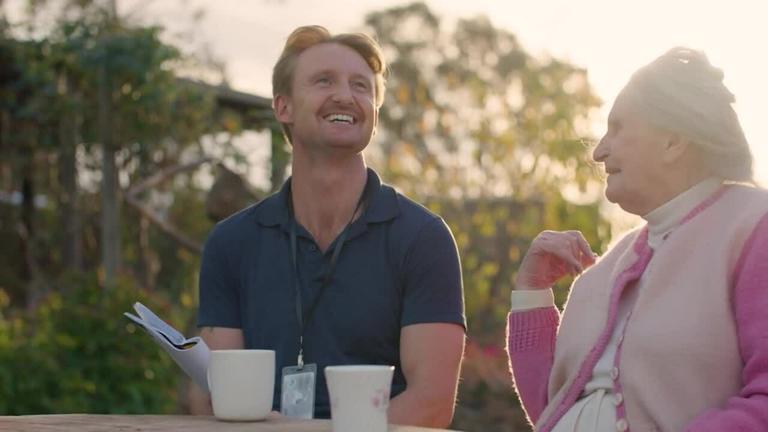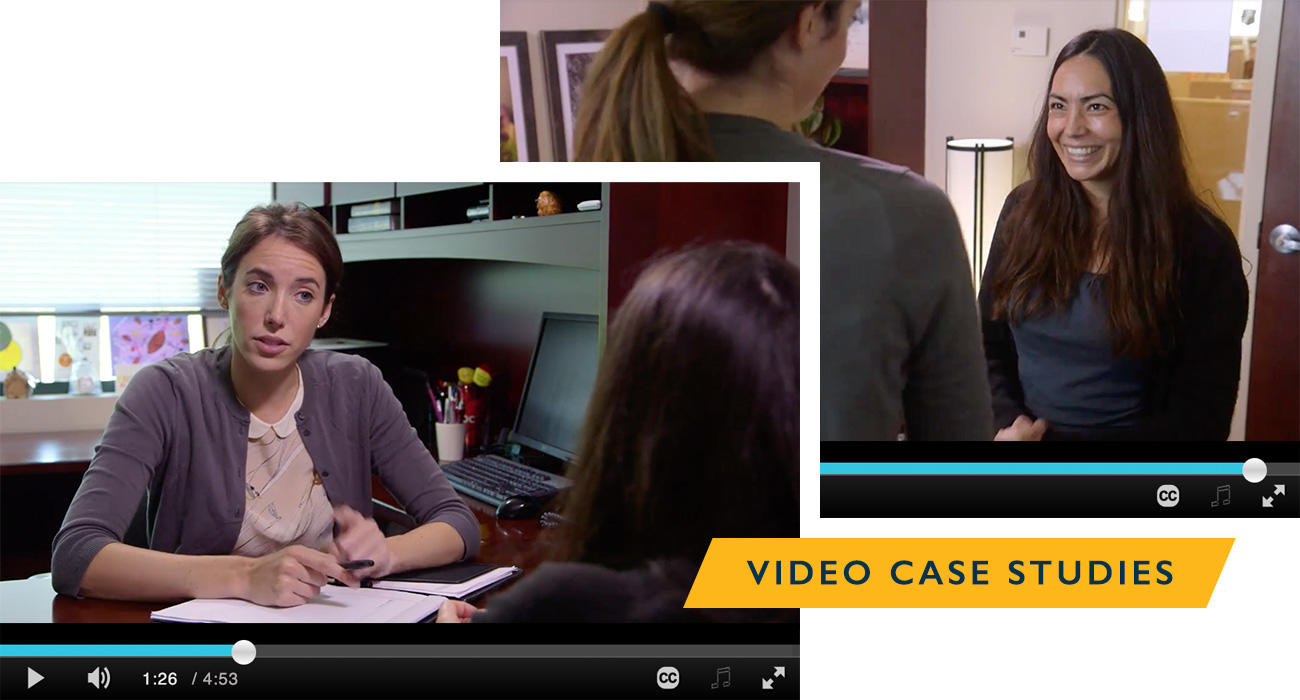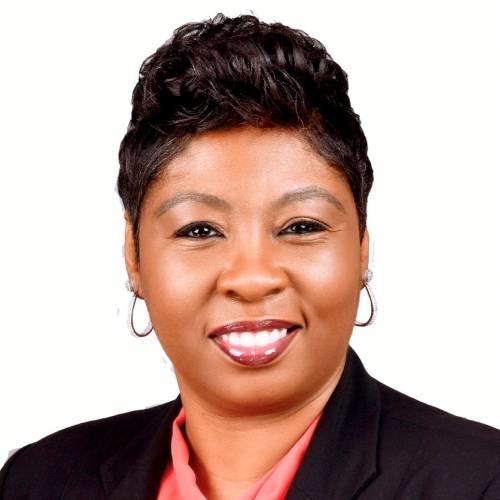Why Choose Walden?
Prepare for Practice With Walden’s CSWE-Accredited Social Work Programs
Walden’s online Master of Social Work program was among the first online MSW programs to be accredited by the Council on Social Work Education (CSWE). Choosing a CSWE-accredited program means you can be confident that your coursework, assessments, and criteria for graduation meet the highest standards to effectively prepare you for today’s social work field.
Program Details
Our MSW program is built for working professionals like you, and we know situations and commitments can change. Customize your MSW to align your lifestyle and career goals by choosing what works best for you among three degree completion options, eight start dates, and five focus area and embedded certificates.
Program Degree Completion
- The Traditional option is the best fit if you’re looking to balance your studies with work, family, and other responsibilities.
- The Traditional Fast Track option can be a good choice if you want an intensive workload and have plenty of time to dedicate to your studies.
- The Advanced Standing option is ideal if you already hold a Bachelor of Social Work (BSW) degree from a CSWE-accredited program and graduated with a minimum GPA of 3.0. This option lets you skip foundational courses and start your MSW with advanced-level courses.
Questions about Walden's MSW program? Our Enrollment Specialists are here to give you answers.
Mission
The online Master of Social Work (MSW) program prepares scholar-practitioners who demonstrate culturally responsive ethical, evidence-based practice with individuals, families, groups, organizations, and communities. The curriculum emphasizes cultural humility within a strengths-based, generalist intervention model and provides advanced clinical skills needed for specialized practice. The program prepares students to be change agents within and beyond their local communities and to advocate for social justice on behalf of diverse populations, with particular attention to people who are vulnerable and/or oppressed.
| Curriculum Component | Requirements | Cost | amount |
|---|---|---|---|
| Tuition | 92 quarter credit hours 97 quarter credit hours with certificate | $535 per credit hour | $49,220 $49,955 |
| Skills Lab Fee | Two in program | Included (travel, lodging, and other expenses are additional if the face- to-face option is selected.) | $0 |
| Program Fee | Per quarter – Standard Per quarter – with optional Certificate | $175 | $1,750 $1,925 |
Standard with Certificate | $50,970** $53,820** | ||
| BELIEVE & ACHIEVE SCHOLARSHIP YOUR TUITION | -$5,885 $45,085* | ||
*Represents Traditional option, no certificate, minimum time to completion, and Believe & Achieve Scholarship. Your actual total program time and costs may vary. Believe & Achieve Scholarship savings based on current tuition. See Scholarship Details for more information.
**Tuition reflects the minimum time to completion. Time to completion varies by student, depending on individual progress and credits transferred, if applicable. Tuition and time to complete may be reduced if transfer credits are accepted, or if you receive grants, scholarships or other tuition reductions. Walden may accept up to 45 transfer credits. For a personalized estimate of the number of your transfer credits that Walden would accept, call an Enrollment Specialist at 855-646-5286.
Tuition and fees are subject to change. Books and materials are not included and may cost between $2,500 to $3,500. The tuition reflects the minimum time to completion, which can vary by student, depending on individual progress.
If you are planning to enroll in three or more courses per quarter, the costs may be more than your financial aid offer per quarter.1
| Curriculum Component | Requirements | Cost | amount |
|---|---|---|---|
| Tuition | 52 quarter credit hours
| $535 per credit hour | $27,820 $30,495 |
| Skills Lab Fee | One in program (face-to-face and virtual options available) | Included (travel, lodging and other expenses are additional if the face- to-face option is selected) | $0 |
| Program Fee | Per quarter – standard Per quarter – with optional certificate | $175 | $1,050 $1,225 |
with certificate | $28,870* $31,720* | ||
| BELIEVE & ACHIEVE SCHOLARSHIP YOUR TUITION (STANDARD OPTION) | -$3,210 $25,660 | ||
* Tuition reflects the minimum time to completion. Time to completion varies by student, depending on a variety of factors, such as individual progress, selected electives, and credits transferred, if applicable. Tuition and time to complete may be reduced if transfer credits are accepted, or if you receive grants, scholarships or other tuition reductions. Walden may accept up to 10 transfer credits. For a personalized estimate of the number of your transfer credits that Walden would accept, call an Enrollment Specialist at 855-646-5286.
Tuition and fees are subject to change. Books and materials are not included and may cost between $1,500 to $2,500. The tuition reflects the minimum time to completion, which can vary by student, depending on individual progress.
If you are planning to enroll in three or more courses per quarter, the costs may be more than your financial aid offer per quarter.1
Program Outcomes
Learning Outcomes
As a graduate of Walden’s Master of Social Work program, you will be prepared to:
- Develop a professional orientation and identity as a social worker.
- Apply legal and ethical standards in the administration of social work.
- Apply principles of advocacy that promote cultural understanding and positive social change in individuals, communities, and society.
- Utilize evidence-based research and critical thinking skills to inform practice in meeting the needs of diverse clientele.
- Synthesize and apply theories of human growth and development to develop culturally responsive social work practices.
- Demonstrate knowledge and skills in the areas of engagement, assessment, intervention, and evaluation with individuals, families, groups.
Read our Master of Social Work Program Assessment of Student Learning Outcomes.
Testimonial
Related Articles
FAQ About Walden’s Master of Social Work (MSW) Program
The National Association of Social Workers (NASW) has designated March as National Professional Social Work Month, a celebration that highlights the important contributions of social workers. Social work professionals make a meaningful impact on nearly every aspect of society as advocates for the vulnerable and underserved. Dr. Barbara Solomon, namesake of Walden University’s Barbara Solomon School of Social Work, exemplifies this tradition of service. A retired Walden University board member and respected leader in the field, Dr. Solomon is recognized by the NASW as a Social Work Pioneer and is an inductee in the California Social Work Hall of Distinction. Walden is proud to count Dr. Solomon as a member of our community and celebrates the outstanding accomplishments of our social work students and alumni.
The Walden online experience is designed with the adult learner in mind, allowing students to balance their courses with their careers, families, and other responsibilities. Students work on their own to meet course deadlines. Students interact with faculty and peers using online discussion boards, and assignments are submitted via the online classroom.
Students have access to a wide variety of support services, including the Writing and Career Planning and Development Centers, as well as to the Student Success Advising team, whose advisors can help track academic progress and answer questions regarding academic policies and programs.
The MSW program at Walden University is designed specifically for online learners and their distinct needs. One of the most compelling aspects of the Walden MSW program is the comprehensive use of case studies.
Students are provided with written case studies covering some of the most critical issues facing social work clients today. Then, in the online classroom, students are exposed to a series of video case studies, custom-designed and produced by Walden. These case studies allow students to apply their learning to situations that social workers face in their daily practice.
On November 12, 2019, the Walden MSW program achieved reaffirmation of its accreditation by the Council on Social Work Education (CSWE), the sole accrediting agency for social work education in the U.S. We are proud to say the reaffirmation is for the maximum allowed—eight years, through October 2027.
You can find more information about accreditation at the CSWE website.
Our curriculum is designed incorporating required elements as determined by CSWE, making it comparable to campus-based programs that are structured in accordance with CSWE guidelines.
In addition, the Walden MSW program offers a great deal of flexibility for working professionals because of its online format and the university’s comprehensive student support for online learners. This flexibility allows students to earn their degrees from wherever they have internet access and study on their own schedule.
For admission to the part-time and two-year full-time tracks:
- Bachelor’s degree from an accredited university with a GPA of 2.5 or higher
- Lower GPAs can be considered on a case-by-case basis
For admission to the Advanced Standing track:
- Applicants must have graduated with a Bachelor of Social Work (BSW) from a Council of Social Work Education (CSWE)-accredited program within the last eight years with a minimum GPA of 3.0
- GPA in social work courses may be considered if favorable
Walden students may qualify for government student loans and grants. For more information about the financial aid process at Walden, talk to an Enrollment Specialist at 1-866-492-5336.
Walden also offers social work scholarships frequently. Be sure to ask an Enrollment Specialist about availability.
Field experience is required by all CSWE-accredited MSW programs and is an opportunity for students to work in real-life settings, interacting with clients under the supervision of a professional social worker. As part of the Walden MSW curriculum, students complete two field experiences over four quarters/terms for a total of 900 hours (students in the Advanced Standing option will complete one field experience for 500 hours). It is important that students consider how they will manage the field experience requirements with other responsibilities.
Field experiences can normally be completed in or near a student’s town or community, and some sites offer tele-practice experiences to meet the direct practice requirements. While we cannot guarantee field sites in any community will have availability or be able to provide a field placement, we partner with students to help them thoroughly explore their community options. Our dedicated team of field education experts, all of whom hold MSW degrees, supports students in selecting and working with field locations that are appropriate for the curriculum and have the necessary supervision.
In addition, students are enrolled in a synchronous (online live with an instructor) field seminar course, which meets weekly, while in their field placement to guide the monitoring and reflecting processes required by CSWE.
To learn more, call an Enrollment Specialist at 1-866-492-5336.
You will not need to come to a campus, but the MSW program includes two 4-day, in-person Skills Labs held in various locations in the United States. When you attend your Skills Labs depends on your degree option (Standard, Accelerated, Advanced Standing) and when you plan to enter your field placement. Students work closely with their academic advisors to plan their attendance.
Skills Labs are an integral part of the MSW program at Walden, providing invaluable hands-on experiences. The labs allow MSW students to meet and collaborate with peers and faculty, get support, discuss ideas, and practice critical professional skills needed to be a social worker. Advising is available and important information about obtaining your license is covered.
We know that time is precious in the lives of our busy students, so Skills Labs are planned carefully to provide the most benefit possible.
Skills Labs are offered several times throughout the year at various locations in the United States. Locations selected are typically major air travel hubs that are easily accessible from most airports and where the cost of accommodations is reasonable.
Please see the Skills Labs calendar or call an Enrollment Specialist at 1-866-492-5336 for more information .
The amount of time it takes to complete your degree will vary based on your previous educational experience, course load, and field placement schedule. We anticipate that students with other life commitments will take two courses per quarter and complete their program in approximately three years.
Some students will take longer and some will complete the program in less time by decreasing or increasing their course load. Talk with an Enrollment Specialist at 1-866-492-5336 to discuss your individual time commitment.
1The maximum direct unsubsidized loan for graduate students is $20,500 for the award year. That amount is equally divided over three quarters (payment periods) in the award year. If you are planning to enroll in three or more courses per quarter, the costs may be a more than your financial aid offer per quarter.
We encourage you to pay the difference each quarter or make a payment plan with the Bursar’s Office before borrowing additional funds, but if you must borrow, you may apply for the federal Graduate PLUS loan in addition to the direct unsubsidized loan. The GradPLUS limit is the Cost of Attendance (as determined by the school) minus other aid received. However, unlike the Direct Unsubsidized Loan, GradPLUS loans require that you pass a simplified credit check. Students who do not pass the credit check can still receive the loan if they are able to find an eligible endorser who can pass the credit check.
2Bureau of Labor Statistics | Social Workers | Job Outlook
Accreditation
Walden University’s Master of Social Work (MSW) program is accredited by the Council on Social Work Education’s (CSWE) Board of Accreditation. Accreditation of a baccalaureate or master’s social work program by the Council on Social Work Education’s Board of Accreditation indicates that it meets or exceeds criteria for the assessment of program quality evaluated through a peer review process. An accredited program has sufficient resources to meet its mission and goals and the Board of Accreditation has verified that it demonstrates compliance with all sections of the Educational Policy and Accreditation Standards.
Note on Licensure
The Walden University Master of Social Work (MSW) program is designed to prepare graduates to practice as licensed social workers in many states. However, the requirements for licensure as a social worker vary greatly from state to state. Each state board that is responsible for regulating the practice of social work has its own academic requirements and issues its own license to practice as a social worker in that state. Additionally, students should be advised that the Walden MSW program is not designed or intended to prepare graduates for licensure as a school social worker; however, graduates might be eligible for licensure as a school social worker in their particular state of residence.
While Walden Enrollment Specialists can provide general information relating to the state-by-state educational requirements for social work licensure or certification, it remains the student’s responsibility to understand, evaluate, and comply with all requirements relating to field education experiences, licensing or certification, authorization, or endorsement for the state in which she or he resides. Walden makes no representations or guarantee that completion of its coursework or programs will permit an individual to obtain state licensure, certification, authorization, endorsement, or other state credential. Licensure eligibility determinations are ultimately determined by the appropriate state board that issues the credential to practice.
Prospective students enrolling in licensure-leading programs are advised that relocation to another state may impact the student’s ability to complete field experiences and/or to obtain professional licensure, certification, or other credential in another state. Prospective students are advised to carefully review, evaluate, and understand the requirements of the applicable licensure board in the state in which they intend to relocate.





















